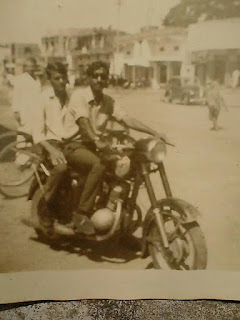Raju Korti
In a historic decision the people of Britain have voted for an exit from the European Union. There seems to be much belly-dancing over a decision which is being seen as having major ramifications for the nation, but no one seems to have a clear word on the political course in store after this referendum.
As expected the decision has warmed the hearts of Euro-sceptics around the country. On the flip side it has also sent the European economy into a tizzy with the Pound hitting an all time low since the last thirty years. Prime Minister David Cameron who resigned after the referendum outcome was known, has dropped hints that it will take at least a couple of years for the divorce to come about. This road-map, however, is fraught with uncertainties and poses a formidable challenge to his successor. In a carefully cultivated language that is patently British, Cameron has sought to outline his limited role in near future. "I will try everything within my means to steady the rocking ship but I think it would not be right for me to captain a ship that should steer the country to its next destination." Considering the upheaval it has caused in economic terms, two years are not much for Cameron's successor to reflect on the future course of action.The Euro-sceptics are already rejoicing. They believe the Brexit is a great opportunity for the country to find its voice again even as global markets have become nervous like never before. The biggest question is the uncertainty after Britain formally exits from the EU because one would expect the country to draft its trade agreements all over again. At the moment, given the flux, it is not clear how the country is equipped to tackle the market and economic volatility. There are pluses and minuses on both sides.On the one hand, the European countries have every reason to keep trading with UK since it happens to be a large importer of goods and services. On the other, foreign companies will be less inclined to invest in the country. The bigger worry is they may be forced to relocate their headquarters if Britain loses access to EU's single market. However, one thing is absolutely clear: With the country voting to exit EU, it will not have to pump in billions of Pounds every year to the Union's budget. Little wonder many are convinced that this would serve as a major shock absorber for the present economic turmoil that won't last much longer.There are other question marks. For instance, what happens to the British expats in other European countries and issues relating to immigration. Likewise, one also cannot put a finger on how the Brexit compromises on Britain's ability to fight terrorism. It is also not without reason to argue that the UK will now be much less influential on the international stage because it won't be in a position to get involved when crucial decisions are made. Even bigger is the question will the Brexit rip EU apart?
A similar but possibly more niggling echo might be heard in Ireland long divided between a protestant North that's part of the UK and an independent Irish republic in the South. If the tensions today are are minimum it is because EU rules guarantee the right to move across the border. There is every likelihood that the UK withdrawal from the EU might lead to border tensions. One outcome could be Northern Ireland could unify with the rest of the Ireland.
There is a lighter side to this drama as well. If reports are to be believed post-Brexit, Britishers are said to be going on an overdrive Googling "What is the EU?". Imagine, of all the people, the British starting to wonder about the implications of their choice. That is so un-British!
In a historic decision the people of Britain have voted for an exit from the European Union. There seems to be much belly-dancing over a decision which is being seen as having major ramifications for the nation, but no one seems to have a clear word on the political course in store after this referendum.
 |
| A file grab from Encyclopaedia |
There is a lighter side to this drama as well. If reports are to be believed post-Brexit, Britishers are said to be going on an overdrive Googling "What is the EU?". Imagine, of all the people, the British starting to wonder about the implications of their choice. That is so un-British!





